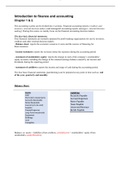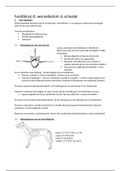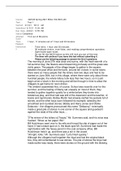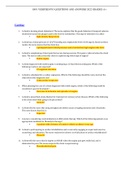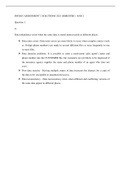Samenvatting
Morality of commercial Life literature summary
- Instelling
- Tilburg University (UVT)
This is a summary for the literature of Morality of Commercial life given in the third year of the BSc International Business Administration at Tilburg University. The summary consists of all the summaries for the 9 academic articles that were literature material. (Can be combined with the remaini...
[Meer zien]





